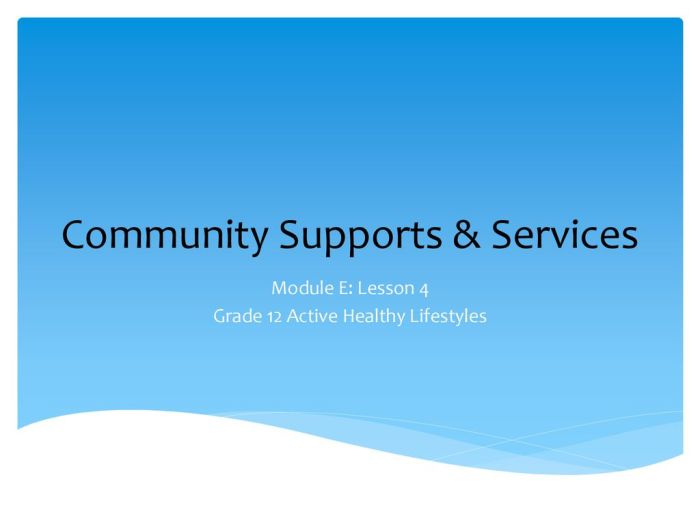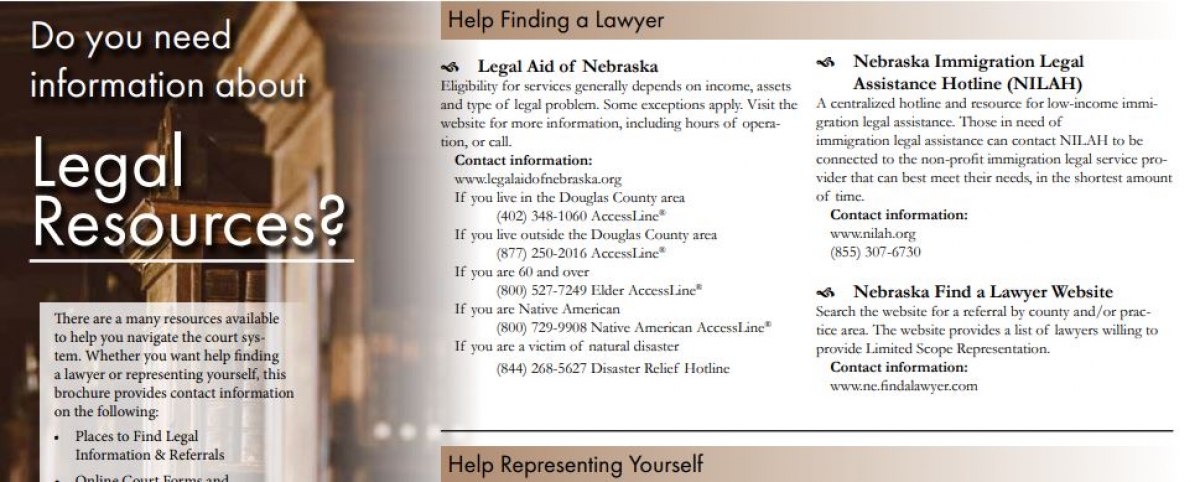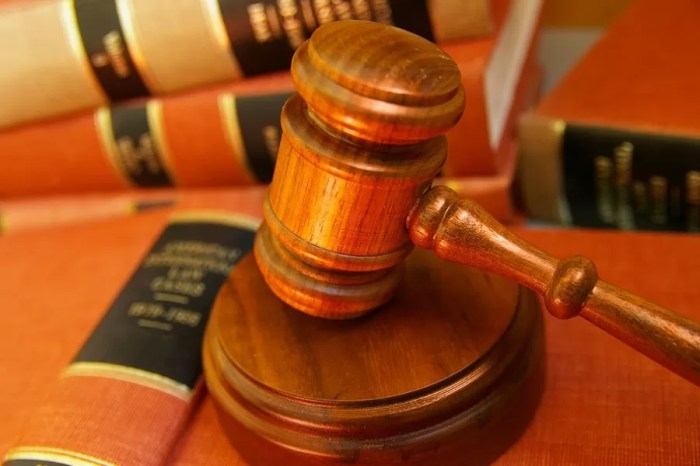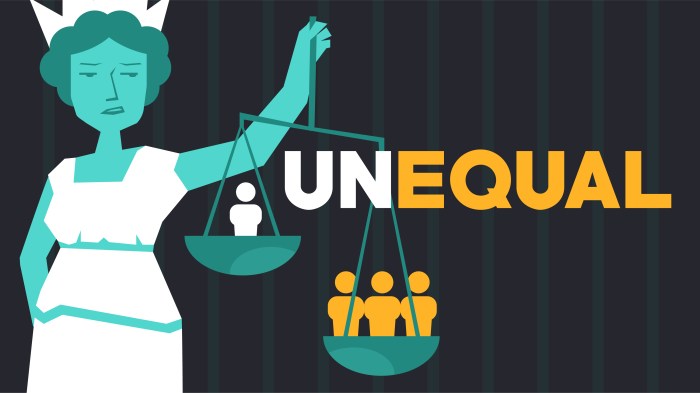What are the community resources for self-help legal representation? This article will provide an overview of the various community resources available to individuals seeking legal assistance without the need for an attorney. From legal aid centers to pro bono services, we will explore the options available to ensure access to justice for all.
Community resources for self-help legal representation play a vital role in providing access to justice for individuals who may not have the financial means to hire an attorney. These resources offer a range of services, including legal advice, representation in court, and community education, to help individuals navigate the complexities of the legal system.
Community Legal Aid Centers
Community Legal Aid Centers provide essential legal assistance to low-income individuals and families. These centers are dedicated to ensuring equal access to justice by offering free or low-cost legal services.
Community Legal Aid Centers typically focus on civil legal issues, such as housing, family law, consumer protection, and employment law. They offer a comprehensive range of services, including legal advice, representation in court, and community education.
Services Offered
- Legal advice: Community Legal Aid Centers provide free or low-cost legal advice to individuals who need assistance with a legal issue. This advice can help people understand their rights, options, and potential legal remedies.
- Representation in court: Community Legal Aid Centers can represent individuals in court in a variety of civil cases. This includes representing tenants in eviction proceedings, parents in child custody disputes, and consumers in debt collection cases.
- Community education: Community Legal Aid Centers offer educational programs and workshops to help people understand their legal rights and responsibilities. These programs can cover a wide range of topics, such as landlord-tenant law, family law, and consumer protection.
Pro Bono Legal Services
Pro bono legal services provide free legal assistance to individuals and communities who cannot afford to hire an attorney. These services are offered by volunteer attorneys who donate their time and expertise to help those in need.
Pro bono legal services can focus on a variety of areas of law, including family law, housing law, employment law, and criminal defense. They may also target underserved communities, such as low-income families, seniors, and immigrants, who have limited access to legal aid.
Collaboration and Partnerships
Pro bono legal services often collaborate with local legal aid organizations and community groups to identify clients in need. They also recruit and train volunteer attorneys from a variety of practice areas to ensure that all clients receive high-quality legal representation, regardless of their ability to pay.
Legal Aid Societies: What Are The Community Resources For Self-help Legal Representation
Legal aid societies are non-profit organizations dedicated to providing legal services to individuals and families with limited financial means. These organizations play a crucial role in ensuring access to justice for those who might otherwise be unable to afford legal representation.
Legal aid societies are often funded through a combination of government grants, private donations, and fees for services. They typically offer a wide range of legal assistance, including civil legal aid, criminal defense, and immigration law services.
Eligibility Requirements
Eligibility for legal aid services is typically determined based on income guidelines and residency requirements. These guidelines vary from state to state, but generally, individuals and families with incomes below a certain threshold are eligible for assistance.
Impact
Legal aid societies have a significant impact on the lives of low-income individuals and families. They provide access to justice, reduce disparities in legal outcomes, and help to ensure that everyone has a fair chance to navigate the legal system.
Challenges
Legal aid societies face a number of challenges, including funding limitations, high demand for services, and complex legal issues. Despite these challenges, they continue to provide essential legal services to those in need.
Innovations
Legal aid societies are constantly innovating to find new and effective ways to provide legal services to low-income individuals and families. These innovations include pro bono partnerships, technology-based legal services, and collaboration with community organizations.
Provide access to legal resources and research materials, including online databases, print materials, and multimedia resources
Many public libraries offer access to a wide range of legal resources, including online databases, print materials, and multimedia resources. These resources can be a valuable asset to individuals who are representing themselves in legal matters. Online databases can provide access to case law, statutes, and legal forms.
Print materials can include books, articles, and treatises on a variety of legal topics. Multimedia resources can include videos, podcasts, and webinars on legal issues.
Public libraries also offer a variety of other services that can be helpful to individuals who are representing themselves in legal matters. These services may include legal advice or referrals to qualified attorneys, workshops or seminars on legal topics, access to pro bono legal services, research assistance to attorneys or other legal professionals, and a collection of legal forms and documents.
Online legal research tools
Many public libraries offer access to online legal research tools. These tools can provide access to a wide range of legal resources, including case law, statutes, and legal forms. Online legal research tools can be a valuable asset to individuals who are representing themselves in legal matters, as they can save time and money by providing access to the same resources that are available to attorneys.
Legal Clinics
Legal clinics are a valuable resource for low-income individuals who need legal assistance. They are typically operated by law schools or legal aid organizations and provide a range of legal services, including:
- Advice and counseling
- Representation in court
- Document preparation
- Negotiation
- Research
Legal clinics are staffed by experienced attorneys and law students who are supervised by licensed attorneys. This ensures that clients receive high-quality legal services.
Eligibility
Eligibility for legal clinic services varies depending on the clinic. Some clinics serve all low-income individuals, while others have specific eligibility criteria, such as income limits or geographic restrictions.
How to Find a Legal Clinic, What are the community resources for self-help legal representation
To find a legal clinic in your area, you can contact your local bar association or legal aid organization. You can also search online for legal clinics in your area.
Online Legal Resources
The internet has become an invaluable resource for individuals seeking legal information and guidance. Websites and databases provide a wealth of information on various legal topics, empowering individuals to understand their rights and options. These resources often include self-help tools and forms that can assist individuals in navigating the legal system without the need for an attorney.
Websites and Databases
Numerous websites and databases offer comprehensive legal information and guidance. Some notable examples include:
- Legal Information Institute (LII): A project of Cornell Law School, LII provides access to a vast collection of legal materials, including statutes, case law, legal articles, and legal dictionaries.
- FindLaw: A popular legal website that offers a wide range of legal information, including articles, videos, and legal forms. FindLaw also provides access to a directory of attorneys.
- LexisNexis: A subscription-based legal research service that provides access to a comprehensive database of legal information, including statutes, case law, and legal treatises.
- Westlaw: Another subscription-based legal research service that offers access to a similar database of legal information as LexisNexis.
- Nolo: A publisher of self-help legal books and software that also offers a website with a variety of legal information and resources.
These websites and databases provide information on a wide range of legal topics, including family law, criminal law, employment law, and consumer law. They can be particularly helpful for individuals who are unable to afford an attorney or who wish to learn more about their legal rights and options before seeking professional assistance.
Self-Help Tools and Forms
In addition to providing legal information, many websites and databases offer self-help tools and forms that can assist individuals in navigating the legal system without the need for an attorney. These tools and forms can include:
- Legal document templates: Websites such as LegalZoom and Rocket Lawyer offer templates for various legal documents, such as wills, trusts, and contracts.
- Online legal calculators: These calculators can help individuals estimate the value of their legal claims or determine their eligibility for certain legal benefits.
- Legal chatbots: Chatbots powered by artificial intelligence can provide individuals with basic legal information and guidance.
- Pro se (self-representation) resources: Some websites offer resources and guidance for individuals who choose to represent themselves in court.
Self-help tools and forms can be a valuable resource for individuals who are facing legal issues and who are unable to afford an attorney. However, it is important to note that these tools and forms are not a substitute for legal advice from a qualified attorney.
If you have complex legal issues or are unsure about how to proceed, it is always advisable to seek professional assistance.
Legal Hotlines

Legal hotlines provide a valuable resource for individuals seeking legal advice and guidance without the need for an in-person consultation. These hotlines are typically operated by non-profit organizations or government agencies and offer free or low-cost legal assistance over the phone.
Legal hotlines often specialize in specific areas of law, such as housing, family law, or consumer protection. This specialization allows the hotline staff to provide tailored advice and information that is relevant to the caller’s specific legal issue.
Availability
Legal hotlines are available in many communities across the country. The availability of specific hotlines may vary depending on the location and the area of law. Some hotlines operate during regular business hours, while others may offer extended hours or even 24/7 support.
Confidentiality
All communications with legal hotlines are confidential. The hotline staff is bound by ethical and legal obligations to maintain the privacy of callers. This allows individuals to seek legal advice without fear of their information being shared with others.
Benefits
- Free or low-cost legal advice:Legal hotlines provide legal advice and guidance without charging a fee or at a minimal cost.
- Convenience:Legal hotlines allow individuals to access legal assistance from the comfort of their own home or office.
- Timely assistance:Legal hotlines can provide immediate legal advice, which can be crucial in time-sensitive legal matters.
- Expert guidance:Legal hotlines are staffed by experienced legal professionals who can provide accurate and reliable legal information.
Legal Assistance Programs
Legal assistance programs are government-funded initiatives that provide legal services to low-income individuals who cannot afford private attorneys. These programs aim to ensure equal access to justice for all, regardless of financial means.Legal assistance programs typically include legal aid societies, pro bono programs, and legal clinics.
Legal aid societies are non-profit organizations that provide free or low-cost legal services to eligible individuals. Pro bono programs connect volunteer attorneys with low-income clients who need legal assistance. Legal clinics are law school-based programs that provide legal services to low-income clients under the supervision of law students and faculty.
Government Funding
Legal assistance programs are primarily funded by the federal government through the Legal Services Corporation (LSC). The LSC is an independent non-profit organization that provides grants to legal aid organizations across the country.
Eligibility
Eligibility for legal assistance programs varies depending on the specific program and the state in which it operates. Generally, individuals must meet certain income and asset requirements to qualify for services.
Scope of Services
Legal assistance programs provide a wide range of legal services, including:
- Civil legal matters, such as family law, housing, consumer protection, and employment law
- Criminal defense for indigent defendants
- Legal advice and representation
- Legal education and outreach
Importance
Legal assistance programs play a vital role in ensuring access to justice for all. They provide essential legal services to low-income individuals who would otherwise be unable to afford an attorney. Legal assistance programs help to level the playing field and ensure that everyone has the opportunity to protect their rights and interests under the law.
Legal Document Preparers
Legal Document Preparers are individuals or companies that provide assistance with preparing legal documents. They are not licensed to provide legal advice, but they can help you understand your legal options and prepare the necessary paperwork.
Benefits of Using a Legal Document Preparer
- Can save you time and money by helping you prepare your documents correctly.
- Can help you avoid mistakes that could delay or even invalidate your legal proceedings.
- Can provide you with peace of mind knowing that your documents are prepared professionally.
How to Choose a Legal Document Preparer
When choosing a Legal Document Preparer, it is important to consider the following factors:
- Experience and qualifications
- Reputation
- Cost
It is also important to make sure that the Legal Document Preparer you choose is licensed and insured.
What to Expect from a Legal Document Preparer
When you work with a Legal Document Preparer, you can expect them to:
- Discuss your legal needs with you.
- Help you understand your legal options.
- Prepare the necessary legal documents for you.
- Review your documents with you before you sign them.
Legal Document Preparers can be a valuable resource for people who need help with preparing legal documents. By choosing a qualified and experienced Legal Document Preparer, you can save yourself time, money, and stress.
Legal Aid Bureaus

Legal Aid Bureaus are vital organizations that provide legal assistance to individuals with limited financial means. These bureaus play a crucial role in ensuring access to justice for those who may otherwise be unable to afford legal representation.
Legal Aid Bureaus may be operated by government agencies or nonprofit organizations. They offer a wide range of legal services, including:
Types of Services
- Legal advice and counseling
- Representation in court proceedings
- Help with legal documents and forms
- Referrals to other legal resources
Legal Aid Bureaus are staffed by experienced attorneys and paralegals who are committed to providing high-quality legal services to those in need. They understand the challenges faced by low-income individuals and families and work tirelessly to protect their rights.
Eligibility
To be eligible for services from a Legal Aid Bureau, individuals must meet certain income and asset guidelines. These guidelines vary from state to state, but generally, individuals must be at or below 125% of the federal poverty level.
Legal Aid Bureaus play an essential role in our justice system. They provide access to legal services for those who need it most and help to ensure that everyone has a fair chance at justice.
Legal Service Corporations

Legal service corporations are non-profit organizations that provide funding to legal aid organizations. They are funded by government grants and private donations.To be eligible for funding from a legal service corporation, an organization must be a non-profit organization that provides legal services to low-income individuals.
The organization must also meet certain other requirements, such as having a sound financial management system and a qualified staff.Organizations that wish to apply for funding from a legal service corporation must submit an application that includes a description of the organization’s mission, goals, and objectives; a detailed budget; and a plan for how the funds will be used.Legal service corporations typically fund a wide range of legal services, including civil legal services, such as family law, housing law, and consumer law; and criminal defense services.Legal service corporations play a vital role in the provision of legal services to low-income individuals.
They provide funding to organizations that provide free or low-cost legal services to those who cannot afford to hire a private attorney. Legal service corporations also help to ensure that low-income individuals have access to the justice system.
Impact of Legal Service Corporations
Legal service corporations have a significant impact on the provision of legal services to low-income individuals. They provide funding to organizations that provide free or low-cost legal services to those who cannot afford to hire a private attorney. Legal service corporations also help to ensure that low-income individuals have access to the justice system.Studies have shown that legal service corporations have a positive impact on the lives of low-income individuals.
For example, one study found that low-income individuals who received legal assistance were more likely to be able to keep their homes, jobs, and children. Another study found that legal assistance helped low-income individuals to avoid homelessness and poverty.
Public Interest Law Firms
Public interest law firms are organizations dedicated to providing legal assistance to underprivileged individuals and disadvantaged communities. These firms often focus on specific areas of law, such as civil rights, environmental law, or immigration law.
Public interest law firms may offer pro bono services, where attorneys donate their time and expertise to represent clients who cannot afford to pay for legal representation. They may also offer low-cost legal services, where clients are charged a reduced fee based on their income.
Services Provided
- Provide legal advice and representation to low-income individuals and disadvantaged communities.
- Offer pro bono or low-cost legal services.
- May specialize in specific areas of law, such as civil rights, environmental law, or immigration law.
Bar Associations
Bar associations are professional organizations for attorneys. They play a vital role in providing access to legal assistance for low-income individuals and promoting the fair administration of justice.
Many bar associations offer pro bono programs that connect volunteer attorneys with individuals who cannot afford legal representation. These programs provide free or low-cost legal services to eligible clients. In addition, some bar associations have legal assistance programs that provide information and guidance to individuals with legal problems.
Pro Bono Programs
Pro bono programs are an important way for bar associations to give back to their communities. These programs provide free or low-cost legal services to individuals who cannot afford to hire an attorney. Pro bono programs typically focus on civil legal matters, such as family law, housing law, and consumer law.
Legal Assistance Programs
Legal assistance programs provide information and guidance to individuals with legal problems. These programs can help individuals understand their legal rights and options, and can refer them to appropriate resources for further assistance.
Law Enforcement Agencies

Law enforcement agencies play a crucial role in providing legal support and guidance to individuals. While they are not licensed to provide legal representation, they can offer valuable assistance in navigating legal processes and procedures.
Legal Advice and Referrals
Law enforcement officers can provide legal advice and guidance on a range of legal matters, including:
- Understanding your rights and responsibilities
- Filing police reports
- Obtaining restraining orders
- Reporting domestic violence or abuse
- Dealing with landlord-tenant issues
Coordination with Other Agencies
Law enforcement agencies often coordinate with other agencies, such as social services, victim assistance organizations, and legal aid societies, to provide comprehensive legal support to individuals. This collaboration ensures that individuals have access to the resources and assistance they need.
Victim Rights and Resources
Law enforcement agencies are committed to protecting the rights of victims of crime. They can provide information on victim rights and resources, including:
- Crime victim compensation
- Victim advocacy programs
- Legal assistance for victims of domestic violence
Last Recap

In conclusion, community resources for self-help legal representation provide invaluable assistance to individuals seeking legal aid. By understanding the options available, individuals can access the support they need to protect their rights and resolve legal issues effectively. These resources empower individuals to take an active role in their legal matters and promote equal access to justice for all.
Detailed FAQs
What are the eligibility requirements for legal aid services?
Eligibility requirements for legal aid services vary depending on the organization providing the assistance. Generally, individuals must meet income and residency requirements to qualify for free or low-cost legal services.
What types of legal issues can I get help with from community resources?
Community resources for self-help legal representation can assist with a wide range of legal issues, including housing, family law, consumer protection, and criminal defense.
How do I find a community resource for self-help legal representation near me?
You can find community resources for self-help legal representation by contacting your local legal aid society, bar association, or law school. Online directories such as the National Legal Aid & Defender Association’s website can also help you locate resources in your area.